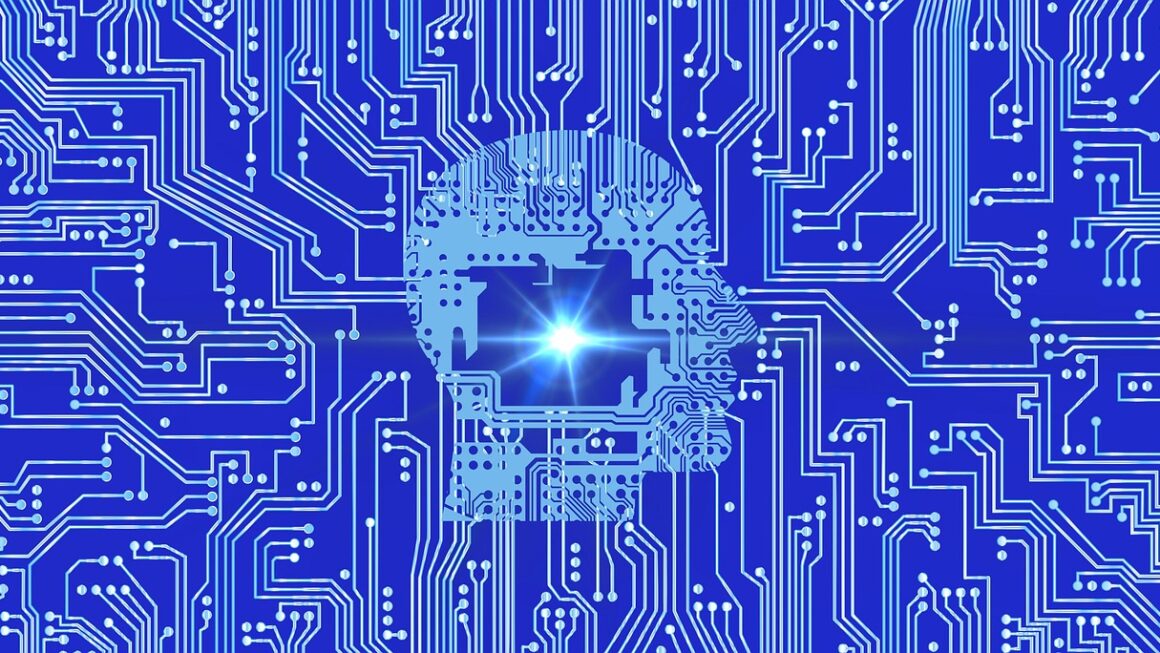The integration of Artificial Intelligence (AI) into the modern workplace is no longer a futuristic fantasy; it’s a rapidly unfolding reality. From automating routine tasks to providing insightful data analysis, AI is reshaping industries and redefining how we work. This transformative technology promises increased efficiency, enhanced productivity, and a more data-driven approach to decision-making. But what does AI really mean for your business, your employees, and the future of work itself? Let’s delve into the impact of AI in the workplace and explore its multifaceted implications.
The Rise of AI in Business Operations
Understanding AI’s Core Capabilities
AI in the workplace isn’t about robots taking over every job. Instead, it’s about leveraging AI’s capabilities to augment human skills and streamline processes. Core AI capabilities impacting the workplace include:
- Automation: Automating repetitive tasks like data entry, scheduling, and invoice processing, freeing up employees for more strategic work.
- Data Analysis: Analyzing vast datasets to identify trends, predict outcomes, and provide actionable insights for better decision-making.
- Natural Language Processing (NLP): Enabling machines to understand and respond to human language, facilitating improved communication and customer service.
- Machine Learning (ML): Allowing systems to learn from data without explicit programming, improving performance over time and adapting to changing conditions.
Examples of AI Applications in Different Industries
AI applications are transforming various industries. Consider these examples:
- Healthcare: AI-powered diagnostic tools can analyze medical images with greater accuracy and speed, aiding in early disease detection. AI chatbots provide virtual assistance to patients, answering questions and scheduling appointments.
- Finance: AI algorithms detect fraudulent transactions, assess credit risk, and provide personalized financial advice. Robo-advisors manage investment portfolios based on individual goals and risk tolerance.
- Manufacturing: AI optimizes production processes, predicts equipment failures, and ensures quality control. Robots perform repetitive and dangerous tasks, improving worker safety.
- Customer Service: AI-powered chatbots handle customer inquiries, resolve issues, and provide 24/7 support. Sentiment analysis tools analyze customer feedback to identify areas for improvement.
- Actionable Takeaway: Identify areas in your business where repetitive tasks consume significant time and resources. Explore AI-powered solutions that can automate these processes, freeing up your employees to focus on more strategic initiatives.
Enhancing Productivity and Efficiency
Automating Repetitive Tasks
One of the most significant benefits of AI is its ability to automate repetitive and mundane tasks. This automation not only saves time but also reduces the risk of human error, leading to improved accuracy and efficiency.
- Robotic Process Automation (RPA): RPA tools automate rule-based tasks, such as data entry, invoice processing, and report generation. For example, an RPA bot can automatically extract data from invoices, validate it against purchase orders, and enter it into the accounting system.
- AI-Powered Scheduling: AI algorithms can optimize meeting schedules, considering participants’ availability, preferences, and travel time. This eliminates the need for manual scheduling, saving time and improving coordination.
Streamlining Workflows with AI
AI can also streamline workflows by optimizing processes and improving decision-making.
- Predictive Maintenance: AI algorithms analyze sensor data from equipment to predict potential failures, allowing for proactive maintenance and preventing costly downtime.
- Supply Chain Optimization: AI optimizes supply chain operations by predicting demand, managing inventory levels, and routing shipments efficiently.
- AI-Driven Project Management: AI tools assist in project planning, task assignment, and progress tracking, ensuring projects are completed on time and within budget.
- Actionable Takeaway: Evaluate your current workflows and identify bottlenecks that can be addressed with AI-powered solutions. Consider implementing AI tools for predictive maintenance, supply chain optimization, or project management to improve efficiency and reduce costs.
Improving Employee Experience and Engagement
AI for Personalized Learning and Development
AI can play a significant role in enhancing employee learning and development by providing personalized learning experiences tailored to individual needs and skill gaps.
- AI-Powered Learning Platforms: These platforms assess employees’ skills and knowledge, recommend relevant courses and training materials, and track progress.
- Personalized Feedback and Coaching: AI algorithms analyze employee performance data to provide personalized feedback and coaching, helping employees improve their skills and achieve their goals.
Enhancing Collaboration and Communication
AI can also improve collaboration and communication within the workplace.
- AI-Powered Communication Tools: These tools provide real-time translation, transcription, and summarization capabilities, facilitating effective communication among diverse teams.
- Virtual Assistants: AI-powered virtual assistants can schedule meetings, manage emails, and provide quick answers to questions, freeing up employees to focus on more important tasks.
- Actionable Takeaway: Invest in AI-powered learning platforms and communication tools to enhance employee skills, improve collaboration, and foster a more engaged and productive workforce. Encourage employees to embrace AI tools and provide training to ensure they can effectively utilize these technologies.
Addressing Challenges and Ethical Considerations
Data Privacy and Security
Implementing AI in the workplace raises important concerns about data privacy and security. It’s crucial to ensure that AI systems are designed and used in a way that protects sensitive data and complies with relevant regulations.
- Data Encryption: Encrypt data at rest and in transit to protect it from unauthorized access.
- Access Controls: Implement strict access controls to limit access to sensitive data to authorized personnel only.
- Data Anonymization: Anonymize data used for AI training and analysis to protect the privacy of individuals.
Bias and Fairness
AI algorithms can perpetuate existing biases if they are trained on biased data. It’s essential to ensure that AI systems are fair and unbiased, and that they do not discriminate against any group of individuals.
- Data Auditing: Regularly audit data used for AI training to identify and correct biases.
- Algorithm Testing: Thoroughly test AI algorithms to ensure they are fair and unbiased.
- Transparency and Explainability: Ensure that AI systems are transparent and explainable, so that users can understand how they make decisions.
Job Displacement and the Future of Work
One of the most pressing concerns about AI is its potential impact on job displacement. While AI can automate many tasks, it also creates new opportunities for workers with the right skills.
- Upskilling and Reskilling: Invest in upskilling and reskilling programs to help employees adapt to the changing demands of the workplace.
- Focus on Human Skills: Emphasize the development of uniquely human skills, such as critical thinking, creativity, and emotional intelligence.
- Embrace a Human-AI Partnership: Recognize that AI is a tool to augment human capabilities, not replace them. Focus on creating a collaborative environment where humans and AI work together to achieve common goals.
- Actionable Takeaway: Prioritize data privacy and security, address potential biases in AI systems, and invest in upskilling and reskilling programs to prepare your workforce for the future of work. Embrace a human-AI partnership to leverage the strengths of both humans and AI.
Conclusion
AI is rapidly transforming the workplace, offering unprecedented opportunities to enhance productivity, improve employee experience, and drive business innovation. While challenges and ethical considerations must be addressed, the potential benefits of AI are undeniable. By understanding AI’s capabilities, embracing a human-AI partnership, and prioritizing ethical considerations, businesses can harness the power of AI to create a more efficient, engaged, and successful workforce. The future of work is here, and it’s powered by AI. Embrace it strategically and responsibly.




